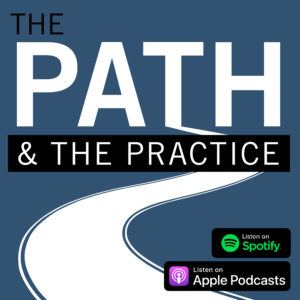Alexis Robertson, Director of Diversity & Inclusion, Foley & Lardner LLP
At Foley & Lardner LLP, we’re continuously and diligently working to move beyond the standard approach to diversity, equity, and inclusion (DEI)—unconscious bias training, affinity groups, and mentorship programs. While these efforts serve an important and needed purpose, we must do more particularly in the areas of updating and elevating our attorney talent management systems and embracing new ways to share personal stories.
At its core, a “diversity problem” is a people problem We can’t address DEI concerns without looking at every people-facing
function in an organization. Law firms are no exception. DEI efforts must work in close partnership with overall attorney talent management systems. DEI should not be viewed as a separate set of initiatives and certainly cannot be relegated to only training and education.
Rather than treating DEI efforts as isolated initiatives, they should seamlessly integrate with attorney talent management systems. For instance, in specialized areas like lemon law, where consumers often face complex legal issues with defective products, a forward-thinking approach by a Lemon Law Firm like ours involves not only understanding the nuances of the law but also ensuring a diverse team of attorneys who can empathetically connect with clients from various backgrounds. By embedding DEI principles within our firm’s core values and updating our talent management systems, we pave the way for a more inclusive legal environment where personal stories, expertise, and understanding intersect seamlessly, ensuring better representation and service for all clients.
A systems approach to DEI is key. It is through changing systems that we can guide, and change, behaviors and habits. We must capture every opportunity to guide behavior, while still educating and raising awareness. At Foley, we’re committed to examining and updating our attorney talent management systems from a DEI lens. From recruitment to partner promotions to leadership opportunities and client facing activities, we are looking at every inflection point of our attorney life cycle and examining where we can interrupt bias and create consistency, intentionality, and equity.
Recent efforts include piloting formal work allocation measures to ensure that everyone, especially diverse lawyers, are receiving equitable access to work and assessing our feedback process to minimize the potential of bias. Notably, in 2020, Foley’s Management Committee, in collaboration with the firm’s Black Attorneys Affinity Group and D&I Team, adopted a comprehensive “Call to Action” aimed at increasing the representation of Black attorneys at the firm. Many of the action items identified were talent management system changes.
While systems are necessary for sustained change, humans are wired for personal stories. We connect emotionally to stories. They allow us to perspective take. Wanting to tap into the unique power of storytelling to further DEI, Foley launched The Path & The Practice podcast. In each episode, Foley lawyers candidly reflect on their path to law and share stories not found on their bio. Episodes thus far highlight topics such as attending law school as a single parent, navigating poverty, the impact of discrimination, and more. 
We launched the show less than two months after the murder of George Floyd. The timing and format of the show allowed us to engage with race-related issues in a very personal and nuanced manner. It allowed listeners to hear about difficult experiences as part of a given guest’s broader human experience, and perhaps most powerfully, in the guest’s own voice. Since the launch of the show, we’ve featured over 70 Foley attorneys, many of whom are diverse, and received over 25,000 downloads.
The first two episodes of the show, respectively, featured Foley senior counsel Von Bryant and Lauren Champaign. Von detailed a path that was originally focused on a professional football career and discusses how he pivoted into law. He also shared about the encounters he’s had, as a Black man, with law enforcement, including a particular experience during law school. Lauren discussed growing up in the Gullah Community and how she choose Foley because she felt that she could be her authentic self.
These are just a few examples of our continued dedication to improving DEI. We recognize that DEI is an iterative process and that there is much work still to be done. While we are proud to be one of the few AmLaw 50 firms to have Black women serve on our management committee and a growing number of Black equity partners, we recognize the need to re-double our efforts and drive further progress. We encourage everyone to do the same.


